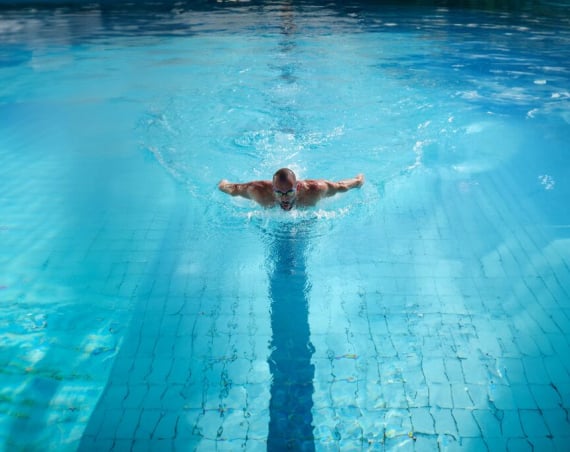The big day is now in sight and you’re only a week away. All of your training and hard work has led to this point, and everything you do now is as important as all the hard work that’s come before. In the week leading up, the day before, and on marathon day itself, there are a few things that you can do to ensure you’re at your best during the 26.6 mile challenge ahead.
The week leading up to the Marathon:
Eat the right food
Nutrition right before a marathon is as vital as ever; as you taper you will reduce the volume and intensity of your training, so make sure you are consuming adequate, but not excessive, amounts of carbohydrates. This will help you get to the start line at ‘race weight’ whilst still having optimum stores of energy in your muscles and avoiding any excess pounds.
Taper off
Tapering means a reduction in volume and intensity of training whilst maintaining frequency. The reason for tapering is to maintain your fitness, restore your legs from the heavy mileage phases, and get to race day in both the best mental and physical state. You should reduce your training load gradually over three weeks so that by the week leading up to marathon day you are doing about 30% of your normal training.
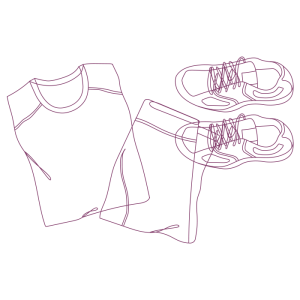
Get used to your kit
Changing your running kit just before the marathon is not a good idea as your body won’t have time to adjust. In the week leading up to the marathon try wearing the kit you intend on running in for a few workouts or even around the house. This will help avoid chafing and blisters on the big day.

Sleep
Good sleep is more important five days previously than the night before, so don’t worry if you don’t have the best night’s sleep the night before the race. You should allow your body to get as much rest as you can in the week before a marathon – try to get in an extra hour or two a night. It is also important to set a routine, so try and keep your schedule consistent.
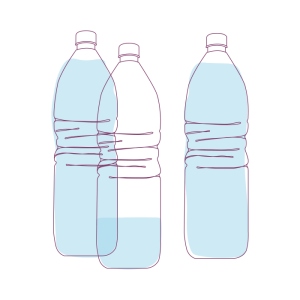
Drink
In this period it is a good idea to maximise hydration by drinking more water than normal each day. However, it is possible to over-hydrate and take on too much water, so you want to avoid this. Your body is the best indicator of how hydrated you are so try to look for the signals. Alcohol will dehydrate you so it is best to avoid this in your last week.
The day before the marathon:

Eat a higher percentage of carbs
Carbohydrates contain glycogen which stores up in your muscles; this is what your body burns off during a marathon to give you energy. Increasing the amount of carbohydrates in your diet before a marathon is known as “carb-loading” and you should try to eat carbohydrates for breakfast, lunch and dinner the day before the marathon. Foods such as pasta, rice and potatoes are a good source of carbohydrates, as well as fruits like bananas for snacking. Don’t over-fill yourself however, eat a normal amount just with a higher percentage of carbohydrates.

Go for a very light run
This is not for fitness reasons but is used by some runners to keep loose for marathon day and increase blood flow to your muscles. Tapering off and relaxing in the week before can leave your legs feeling a little heavy, so go for a 15-20 minute slow run the day before to give your legs a little freshness. Don’t do any exercise that will leave you tired or sore. This technique is not for everyone so do what works best for you.

Relax
Try to stay off your feet as much as possible to give your legs enough time to energise and stay fresh. Nerves are normal but try not to let that feeling overcome you. Focus on things that relax you and try to envisage yourself on the course running well. Don’t worry if you don’t manage to get too much sleep the night before; it is very normal to be nervous about the next day, and as long as you have slept well in the week previous, it won’t affect your performance.
 Plan your morning
Plan your morning
The last thing you want on the morning of the marathon is to be rushing around looking for your kit or anything you had planned to use on marathon day. Lay all of your kit out the night before so that when morning comes around you only need to focus on the day ahead. Plan your route to the start line and organise how you will get back. Have a look at the course map and plan your race strategy, thinking about how you want to perform at certain milestones. This is also a good opportunity to identify areas where your supporters can stand for extra encouragement.
Marathon day:

Eat a nutritious breakfast
Try to eat around three hours before the start of the race to supply your body with the final extra carbs it needs to top off glycogen stores, especially in the liver. This will give you optimum energy and help keep blood sugar levels steady during the race. Keep fats and protein intake minimal as they take longer to digest (this means no butter on your bread!).
A good choice would be something like a bagel with jam and a banana.
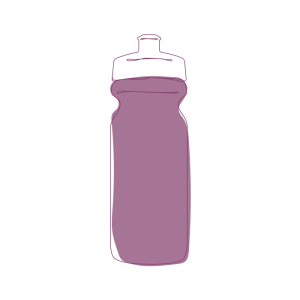
Start drinking early
It’s vital to take on fluid in the early stages of the day and during the race, even if you don’t feel you need it. Drinking little and often is the best strategy to ensure that you remain hydrated and prevent any gastrointestinal issues. If you’re taking on board sports drinks such as Lucozade, be sure to hydrate with some water too.

Grease up
Apply some Vaseline to any areas prone to blisters or chafing before the race. It may be a good idea to use some between your toes to stop unwanted blisters.

Stick to your guns
Having tapered and carbo-loaded, combined with race day adrenaline, it’s all too easy to get carried away in the first few miles. Be strict with yourself and hold yourself back to run at your planned pace, even if you feel good. It’s vital to conserve some energy for the latter stages of the race.
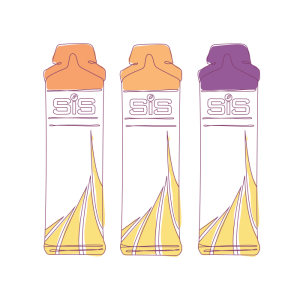
Top up the tank during the race
Your body can only store enough carbohydrate for around 90 minutes of exercise. This means that you will need to ‘top up the tank’ during the race. You can do this with sports drinks, but energy gels are better, providing concentrated carbohydrate that are easily digested on the go. There are loads of energy gels on the market but my favourite are the Science In Sport ones as you don’t have to take them with water. Pop the gels in your pocket/drinks belt or pin them to your shorts and take one every 30 minutes.
MOST IMPORTANTLY, ENJOY THE DAY!
Try not to get too caught up in the moment of excitement and adrenaline, be sure to take a step back and remember all your hard work and how far you’ve come. Be mindful, and take in the whole experience – you’ve earned it! We hope you have a successful marathon!
If you would like to share any good luck messages please use the comment section below.
For more advice, read our marathon series which explores marathon training, advice from marathon runners and marathon fundraising.
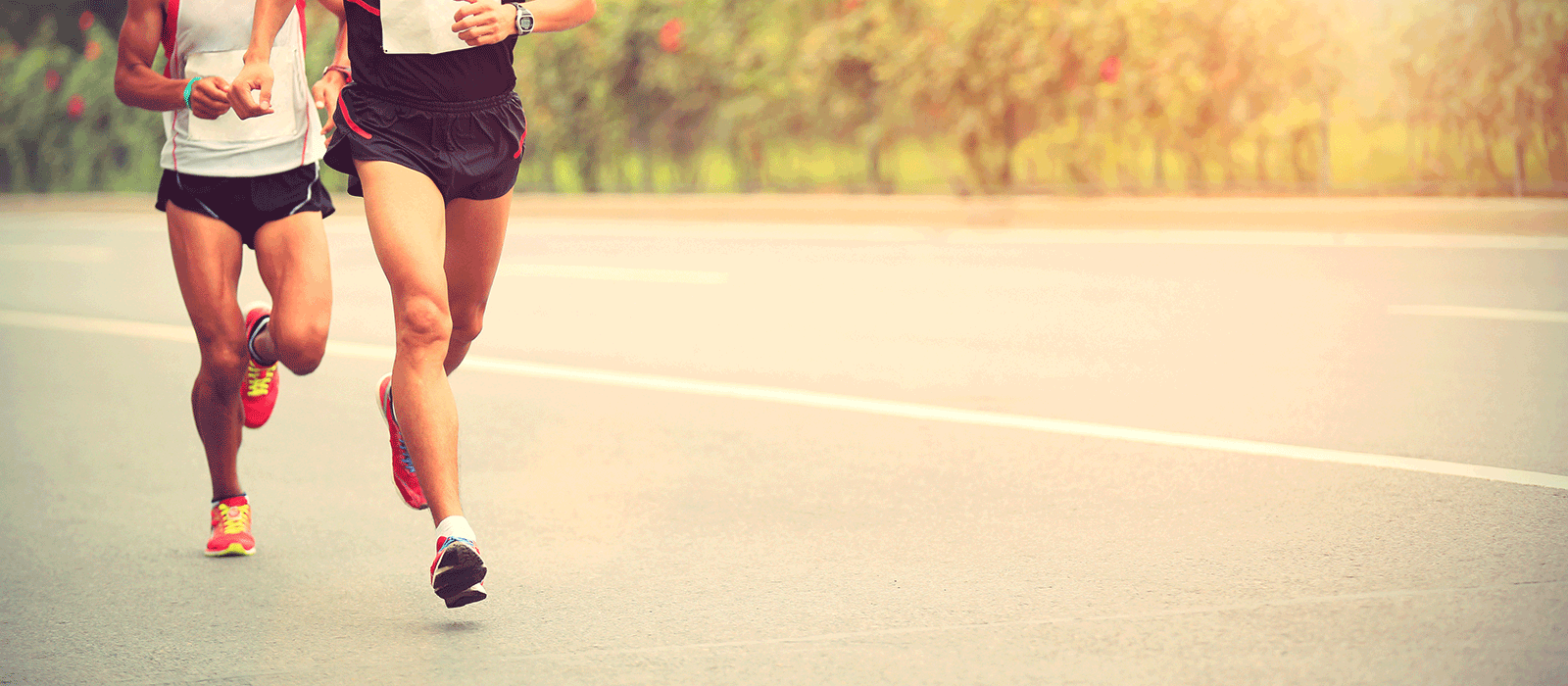

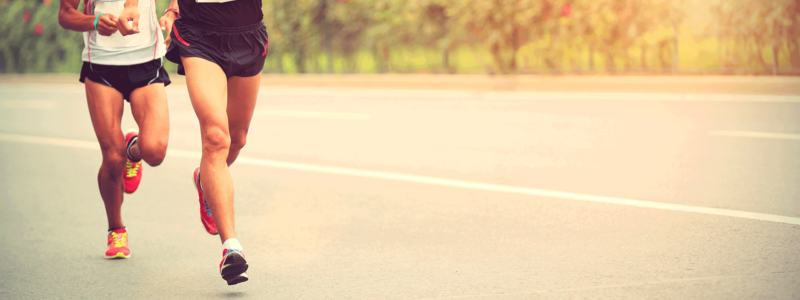
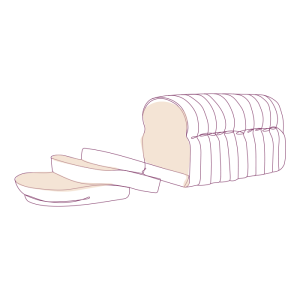

 Plan your morning
Plan your morning



